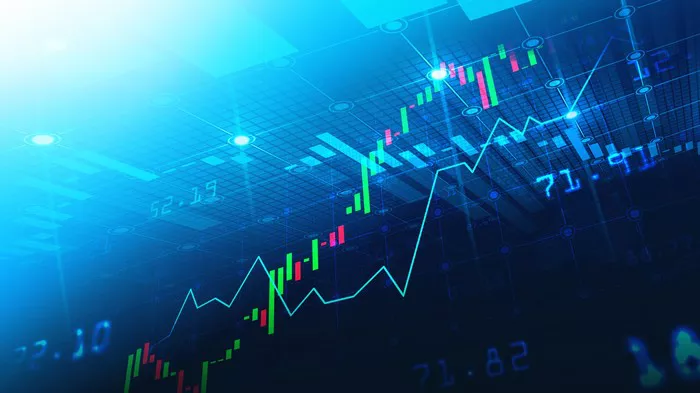In the vast landscape of financial markets, derivatives play a pivotal role in offering traders various avenues for speculation, hedging, and investment. Among these derivatives, futures and options stand out as popular instruments, each with its own set of characteristics and advantages. While options trading has its merits, futures trading often emerges as the preferred choice for many traders due to its ability to better meet their needs across several crucial dimensions.
Understanding Derivatives
Both futures and options belong to the family of derivative instruments, deriving their value from an underlying asset such as stocks, commodities, currencies, or indexes. Derivatives enable traders to gain exposure to the price movements of these underlying assets without necessarily owning them outright. This characteristic makes them valuable tools for managing risk, speculating on price movements, and diversifying investment portfolios.
Leverage and Margin Requirements
One of the key advantages of futures contracts lies in their high leverage and fixed upfront trading costs. Futures allow traders to control a larger position with a relatively smaller amount of capital, amplifying potential returns. Moreover, the margin requirements for futures are typically straightforward and predictable, providing traders with clarity and certainty regarding their initial investment outlay. In contrast, options trading involves variable premiums, which can fluctuate based on factors such as time to expiration, volatility, and the strike price of the option, potentially introducing additional complexity and uncertainty.
Liquidity and Trading Volume
Liquidity, or the ease with which an asset can be bought or sold without significantly affecting its price, is a crucial consideration for traders. Futures markets often exhibit greater liquidity and trading volume compared to options markets, making it easier for traders to enter and exit positions swiftly and at favorable prices. The higher liquidity of futures markets is attributed to several factors, including standardized contract sizes, centralized trading platforms, and active participation from institutional investors and market makers.
Time Decay
A significant factor that distinguishes futures from options is the concept of time decay. Options contracts have a limited lifespan, and their value diminishes as the expiration date approaches, a phenomenon known as time decay or theta decay. This erosion in value poses a challenge for options traders, particularly those employing strategies that rely on the passage of time, such as selling options for income generation. In contrast, futures contracts do not suffer from time decay since they have a fixed expiration date and their value is determined solely by the underlying asset’s price movements.
Risk Management
Effective risk management is paramount in the world of trading and investing, especially in volatile markets. Futures contracts offer robust tools for hedging and managing risk exposure across various asset classes. By taking opposite positions in futures contracts, traders can offset the risk associated with their underlying assets, thereby safeguarding their portfolios against adverse price movements. This hedging capability makes futures particularly attractive to institutional investors, commodity producers, and other market participants seeking to mitigate risk in their operations.
Investment Suitability
The suitability of futures trading varies depending on the nature of the underlying assets and the investment objectives of traders. Futures contracts are well-suited for certain types of investments, such as commodities, currencies, and indexes, due to their standardized features and robust liquidity. Investors looking to gain exposure to these asset classes or hedge against price fluctuations may find futures trading to be a more suitable and efficient option compared to alternatives such as individual stocks or over-the-counter derivatives.
Market Access
Another compelling advantage of futures trading is the market access it provides to investors. The high leverage offered by futures contracts enables traders to participate in markets that might otherwise be inaccessible due to capital constraints or regulatory barriers. Whether it’s commodities, foreign exchange, or equity indexes, futures markets offer a level playing field where traders can capitalize on price movements and profit from their market insights, regardless of their size or geographical location.
Complexity and Understanding
While futures trading may seem complex at first glance, especially to novice investors, it often proves to be more straightforward and transparent compared to options trading. Futures contracts have standardized terms and trading mechanisms, making them easier to understand and value. Unlike options, which come in various forms such as calls, puts, and exotic options, futures contracts adhere to a uniform structure, simplifying the trading process and reducing the learning curve for new participants.
Potential for Higher Returns
One of the allurements of futures trading is the potential for higher returns, driven primarily by the leverage inherent in futures contracts. With relatively small capital outlays, traders can control large positions, magnifying both profits and losses. While this leverage can amplify returns in favorable market conditions, it also entails increased risk exposure, requiring traders to exercise caution and implement robust risk management strategies. It’s essential for traders to recognize the trade-off between potential returns and risk when engaging in futures trading and to adopt disciplined and informed trading practices accordingly.
Regulatory Environment
The regulatory environment plays a significant role in shaping the landscape of futures trading, influencing everything from market structure to trading strategies and investor protection measures. Regulatory bodies such as the Commodity Futures Trading Commission (CFTC) in the United States oversee futures markets, imposing rules and regulations to ensure market integrity, transparency, and fair treatment of market participants. Understanding and adhering to regulatory requirements is essential for traders and investors to operate confidently and ethically within the futures markets, safeguarding their interests and preserving market stability.
In conclusion, while options trading offers its own set of advantages and opportunities, futures trading often emerges as the superior choice for meeting the diverse needs of traders and investors. With high leverage, predictable margin requirements, robust liquidity, and effective risk management tools, futures contracts provide a compelling avenue for speculation, hedging, and portfolio diversification across various asset classes. By understanding the unique features and benefits of futures trading, market participants can capitalize on opportunities, manage risk effectively, and navigate the dynamic landscape of financial markets with confidence and clarity.


